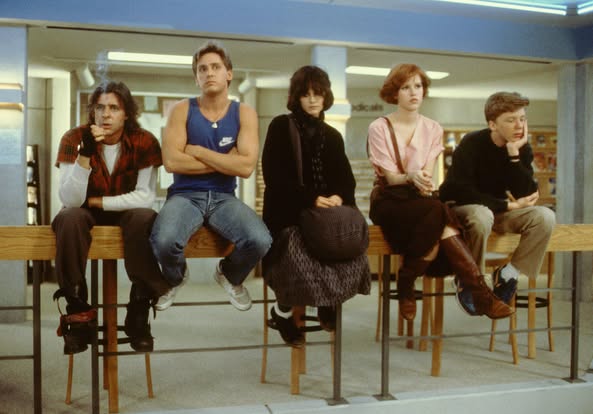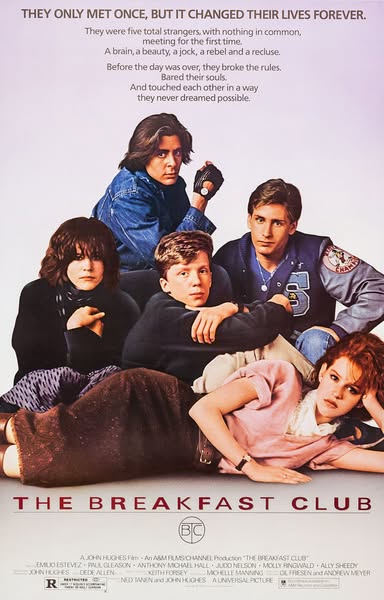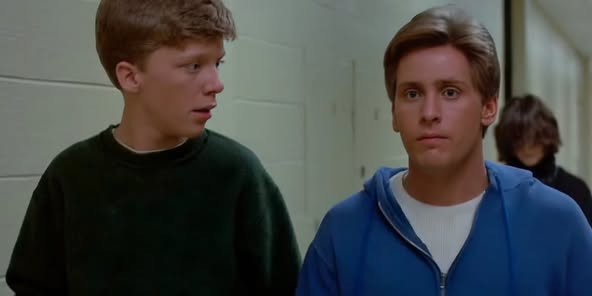The Breakfast Club (1985)

The Breakfast Club is a seminal teen drama film directed by John Hughes, released in 1985. The film has become a cultural touchstone, known for its exploration of adolescent issues, identity, and the social dynamics of high school life.
The story is set in a suburban Chicago high school and takes place entirely in a Saturday detention room. Five students from different social cliques—Brian (Anthony Michael Hall), Claire (Molly Ringwald), Andrew (Emilio Estevez), Allison (Ally Sheedy), and Bender (Judd Nelson)—are brought together after a single day of detention. Each character represents a distinct stereotype: the brain, the princess, the jock, the basket case, and the criminal.

As the day progresses, the group initially struggles with their differences and stereotypes. However, through candid conversations and shared experiences, they begin to open up, revealing their insecurities, pressures, and personal struggles. This process fosters unexpected connections and challenges their preconceived notions of one another.
The film is characterized by its sharp dialogue, memorable performances, and a poignant soundtrack, including the iconic theme song “Don’t You (Forget About Me)” by Simple Minds. John Hughes’s writing captures the essence of teenage angst, offering a nuanced portrayal of the pressures faced by young people.

The Breakfast Club addresses themes of identity, social conformity, and the complexity of human relationships. It explores how labels can limit understanding and empathy, ultimately conveying a message about the importance of looking beyond stereotypes.

Upon its release, the film received positive reviews and has since achieved iconic status, often cited as one of the greatest teen films of all time. It resonated with audiences, particularly those experiencing similar struggles during their own high school years.
In conclusion, The Breakfast Club is a timeless exploration of adolescence that remains relevant to new generations. Its insightful character development, relatable themes, and cultural impact solidified its place in film history as a defining work of the 1980s teen genre.











